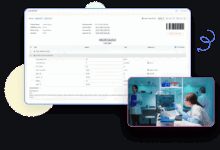Patient scheduling software for specialty clinics with automated appointment reminders: 7 Powerful Patient Scheduling Software for Specialty Clinics with Automated Appointment Reminders
Specialty clinics face unique challenges when managing patient appointments. With complex procedures, limited provider availability, and high no-show rates, the right patient scheduling software for specialty clinics with automated appointment reminders can transform operations—boosting efficiency, improving patient satisfaction, and increasing revenue.
Why Specialty Clinics Need Advanced Patient Scheduling Software
Unlike general medical practices, specialty clinics—such as dermatology, orthopedics, cardiology, or fertility centers—deal with longer appointment durations, multi-step treatment plans, and often require coordination between multiple specialists and departments. This complexity demands more than just a basic calendar system. The right patient scheduling software for specialty clinics with automated appointment reminders streamlines workflows, reduces administrative burden, and ensures patients are engaged throughout their care journey.
Unique Workflow Challenges in Specialty Care
Specialty clinics often manage intricate scheduling needs. For example, a patient visiting an oncology clinic may require imaging, lab work, chemotherapy, and follow-up consultations—all within a single visit or over several weeks. Coordinating these services manually is time-consuming and error-prone.
- Longer appointment blocks due to complex procedures
- Need for pre-visit preparation (e.g., fasting, imaging)
- Coordination between multiple providers and departments
Without intelligent scheduling tools, clinics risk overbooking, underutilizing staff, or creating bottlenecks that delay patient care.
The Cost of No-Shows and Inefficient Scheduling
No-shows are a major financial drain. According to a study by the National Center for Biotechnology Information (NCBI), the average cost of a missed appointment in a specialty clinic ranges from $100 to $300. Multiply that by dozens of no-shows per month, and the losses become staggering.
“In specialty care, where appointment slots are limited and demand is high, every missed visit represents lost revenue and delayed patient outcomes.” — Healthcare Financial Management Association (HFMA)
Automated appointment reminders—delivered via SMS, email, or voice call—have been shown to reduce no-show rates by up to 50%, according to research published in the Journal of Medical Internet Research (JMIR). This makes patient scheduling software for specialty clinics with automated appointment reminders not just a convenience, but a necessity.
Key Features of Effective Patient Scheduling Software for Specialty Clinics
Not all scheduling platforms are created equal. To meet the demands of specialty care, software must go beyond simple calendar management. The best patient scheduling software for specialty clinics with automated appointment reminders includes robust features tailored to complex workflows, compliance needs, and patient engagement.
Customizable Appointment Types and Durations
One-size-fits-all scheduling doesn’t work in specialty clinics. A dermatology clinic may need slots for skin checks, biopsies, and laser treatments, each requiring different time lengths and preparation steps.
patient scheduling software for specialty clinics with automated appointment reminders – Patient scheduling software for specialty clinics with automated appointment reminders menjadi aspek penting yang dibahas di sini.
- Ability to define appointment types with variable durations
- Support for recurring visits (e.g., dialysis, physical therapy)
- Custom fields for procedure codes, provider preferences, or equipment needs
Advanced systems allow administrators to set rules—such as requiring a consultation before a procedure—ensuring that patients are scheduled appropriately and efficiently.
Automated Appointment Reminders with Multi-Channel Delivery
One of the most impactful features of patient scheduling software for specialty clinics with automated appointment reminders is the ability to send timely, personalized reminders through multiple channels.
- SMS (text) reminders: Highest open rate (over 90%) and quick response time
- Email reminders: Ideal for detailed instructions or attachments
- Voice call reminders: Useful for elderly or non-tech-savvy patients
Some platforms even allow patients to confirm, reschedule, or cancel directly from the reminder message, reducing front-desk workload. For example, Zocdoc integrates two-way communication, enabling patients to manage appointments without calling the clinic.
Real-Time Availability and Online Self-Scheduling
Patients today expect the same convenience in healthcare as they do in retail or banking. Offering online self-scheduling through a patient portal or website significantly improves access and satisfaction.
Effective patient scheduling software for specialty clinics with automated appointment reminders provides real-time visibility into provider availability, including:
- Provider-specific calendars (e.g., Dr. Smith only sees patients on Tuesdays and Thursdays)
- Room and equipment availability (e.g., MRI machine booked for 2 hours)
- Buffer times between appointments to prevent overruns
When patients can book their own appointments 24/7, clinics reduce phone volume and improve scheduling accuracy. A study by Healthcare IT News found that 70% of patients prefer online scheduling over phone calls.
Top 7 Patient Scheduling Software Solutions for Specialty Clinics
Choosing the right platform depends on your clinic’s size, specialty, budget, and integration needs. Below are seven of the most powerful patient scheduling software for specialty clinics with automated appointment reminders, each offering unique strengths.
1. Athenahealth Scheduler
Athenahealth is a cloud-based EHR and revenue cycle management platform that includes robust scheduling tools designed for specialty practices.
patient scheduling software for specialty clinics with automated appointment reminders – Patient scheduling software for specialty clinics with automated appointment reminders menjadi aspek penting yang dibahas di sini.
- Intelligent scheduling rules based on specialty, procedure, and provider
- Automated reminders via SMS, email, and voice
- Seamless integration with athenaNet EHR and billing systems
Athenahealth’s system learns from historical data to optimize appointment slots and reduce gaps. It’s particularly popular among cardiology, orthopedic, and neurology clinics. Learn more at athenahealth.com.
2. NextGen Healthcare
NextGen offers a comprehensive suite for specialty clinics, combining EHR, practice management, and patient engagement tools.
- Customizable templates for over 30 medical specialties
- Automated reminders with patient confirmation tracking
- Telehealth integration for hybrid visits
Its scheduling engine supports complex workflows, such as pre-authorization requirements or lab requisitions before appointments. NextGen is widely used in dermatology, gastroenterology, and urology practices. Visit nextgen.com for details.
3. Klara
Klara focuses on team-based communication and patient engagement, making it ideal for clinics with multiple providers and departments.
- Shared inbox for internal scheduling coordination
- Automated reminders with read receipts and confirmations
- Secure messaging between staff and patients
While not a full EHR, Klara integrates with major EMRs like Epic and Cerner, allowing specialty clinics to enhance communication without replacing existing systems. It’s especially effective for fertility clinics and surgical centers. Explore at klara.com.
4. Luma Health
Luma Health specializes in patient engagement automation, with a strong focus on reducing no-shows and improving access.
- AI-powered outreach for appointment reminders and recalls
- Two-way texting for real-time patient interaction
- Automated waitlist management and same-day booking
Luma’s platform is used by over 15,000 providers and has demonstrated a 40% reduction in no-shows. It integrates with most EHRs and practice management systems, making it a flexible choice for specialty clinics. Learn more at lumahealth.com.
5. Solutionreach
Solutionreach is a leader in patient relationship management, offering a full suite of engagement tools including scheduling, reminders, and feedback collection.
patient scheduling software for specialty clinics with automated appointment reminders – Patient scheduling software for specialty clinics with automated appointment reminders menjadi aspek penting yang dibahas di sini.
- Personalized, branded reminder messages
- Automated recall campaigns for overdue screenings
- Integration with Google Calendar, Outlook, and major EHRs
Its strength lies in customization—clinics can tailor messages based on patient demographics, appointment type, or risk factors. It’s widely adopted in ophthalmology, ENT, and pain management clinics. Visit solutionreach.com.
6. Jane App
Jane is a user-friendly, all-in-one platform designed for small to mid-sized specialty clinics, particularly in physical therapy, chiropractic, and mental health.
- Beautiful, intuitive interface for staff and patients
- Online booking with real-time availability
- Automated reminders and customizable workflows
Jane stands out for its affordability and ease of use. It includes billing, documentation, and telehealth features, making it a complete solution for clinics that want simplicity without sacrificing functionality. Check it out at jane.app.
7. Phreesia
Phreesia goes beyond scheduling by offering a full pre-visit intake and payment platform.
- Automated reminders with pre-visit checklists and forms
- Online scheduling integrated with patient registration
- Payment collection before appointments
Used by major health systems and specialty groups, Phreesia reduces administrative burden by digitizing the entire front-end process. It’s particularly effective for oncology, cardiology, and surgical clinics. Learn more at phreesia.com.
How Automated Appointment Reminders Improve Patient Engagement
One of the most transformative aspects of patient scheduling software for specialty clinics with automated appointment reminders is its impact on patient engagement. When patients feel informed and supported, they are more likely to show up, follow through with treatment, and recommend the clinic to others.
Reducing Anxiety and Improving Preparation
Many specialty appointments require specific preparation—fasting before a blood test, bringing prior imaging, or completing consent forms. Automated reminders can include personalized instructions, reducing confusion and last-minute cancellations.
- Send pre-visit instructions 48 hours in advance
- Attach PDFs or links to educational materials
- Confirm insurance or co-pay requirements
For example, a fertility clinic can send a reminder with a checklist: “Bring your ID, insurance card, and any prior ultrasound reports.” This level of detail improves patient readiness and clinic efficiency.
patient scheduling software for specialty clinics with automated appointment reminders – Patient scheduling software for specialty clinics with automated appointment reminders menjadi aspek penting yang dibahas di sini.
Building Trust Through Consistent Communication
Regular, professional communication builds trust. When patients receive timely reminders from their clinic, they perceive the practice as organized and caring.
“Patients who receive automated reminders are 30% more likely to rate their experience as ‘excellent’ compared to those who don’t.” — Patient Experience Journal
Moreover, two-way messaging allows patients to ask questions or report concerns before the visit, enabling staff to address issues proactively.
Integration with EHR and Practice Management Systems
For patient scheduling software for specialty clinics with automated appointment reminders to be truly effective, it must integrate seamlessly with existing systems. Siloed data leads to errors, duplication, and inefficiency.
Why Integration Matters
Without integration, staff must manually update multiple systems—entering appointments in the scheduler, then again in the EHR, then in the billing system. This is not only time-consuming but also increases the risk of errors.
- Double-booking due to calendar sync failures
- Miscommunication about patient status or insurance
- Delayed claims submission due to missing documentation
Integrated platforms ensure that when a patient schedules an appointment, it automatically appears in the EHR, triggers reminders, updates the billing system, and notifies the provider.
Top Integration Standards: HL7, FHIR, and API Access
Modern scheduling software should support industry-standard integration protocols:
- HL7 (Health Level 7): A widely adopted messaging standard for exchanging clinical data
- FHIR (Fast Healthcare Interoperability Resources): A newer, API-based standard that enables real-time data sharing
- RESTful APIs: Allow custom integrations with internal tools or third-party apps
For example, a clinic using Epic EHR can leverage FHIR to sync appointment data with a scheduling platform like Luma Health, ensuring real-time accuracy across systems. Learn more about FHIR at hl7.org/fhir.
Security, Compliance, and HIPAA Considerations
When handling patient data, security is non-negotiable. Any patient scheduling software for specialty clinics with automated appointment reminders must comply with HIPAA (Health Insurance Portability and Accountability Act) regulations.
patient scheduling software for specialty clinics with automated appointment reminders – Patient scheduling software for specialty clinics with automated appointment reminders menjadi aspek penting yang dibahas di sini.
HIPAA-Compliant Communication Channels
Not all messaging platforms are HIPAA-compliant. SMS, for example, is inherently insecure unless encrypted. Reputable scheduling software uses secure, encrypted channels for patient communication.
- End-to-end encryption for text and voice messages
- Audit trails for all patient interactions
- BAA (Business Associate Agreement) signed with the vendor
Platforms like Klara and Phreesia are fully HIPAA-compliant and provide BAAs, ensuring that clinics remain protected from liability.
Data Storage and Access Controls
Patient data must be stored securely, with strict access controls. Look for software that offers:
- Role-based access (e.g., front desk vs. provider vs. billing)
- MFA (Multi-Factor Authentication) for staff logins
- Regular security audits and SOC 2 certification
Cloud-based platforms like Athenahealth and NextGen use enterprise-grade security measures, including data encryption at rest and in transit.
Measuring ROI: How Scheduling Software Boosts Clinic Performance
Investing in patient scheduling software for specialty clinics with automated appointment reminders isn’t just about convenience—it’s a strategic decision that impacts the bottom line.
Reducing No-Show Rates and Increasing Revenue
As mentioned earlier, no-shows can cost $100–$300 per missed appointment. With automated reminders, clinics can reduce no-shows by 30–50%, directly increasing revenue.
- Assume a clinic has 20 no-shows per month at $200 each = $4,000 loss
- With a 40% reduction, that’s $1,600 saved monthly or $19,200 annually
- Even after software costs, the ROI is significant
Additionally, automated waitlist management allows clinics to fill last-minute cancellations, maximizing provider utilization.
Improving Staff Efficiency and Reducing Burnout
Front-desk staff spend hours each day calling patients to confirm appointments. Automating this task frees up time for higher-value activities like patient support or insurance verification.
patient scheduling software for specialty clinics with automated appointment reminders – Patient scheduling software for specialty clinics with automated appointment reminders menjadi aspek penting yang dibahas di sini.
- Reduce phone calls by 60–70%
- Decrease scheduling errors and double-booking
- Improve staff morale and reduce turnover
A study by the New England Journal of Medicine found that reducing administrative tasks improves provider satisfaction and reduces burnout.
Future Trends in Patient Scheduling for Specialty Clinics
The landscape of patient scheduling software for specialty clinics with automated appointment reminders is evolving rapidly. Emerging technologies are making systems smarter, more predictive, and more patient-centric.
AI-Powered Predictive Scheduling
Artificial intelligence is being used to predict no-shows based on patient history, demographics, and behavior. Systems can then automatically overbook high-risk slots or send extra reminders.
- Machine learning models analyze past appointment patterns
- Dynamic reminder timing (e.g., send SMS 48 hours before, email 7 days before)
- Automated rescheduling suggestions for high-risk patients
For example, Luma Health’s AI engine identifies patients with a history of late cancellations and triggers proactive outreach.
Integration with Wearables and Remote Monitoring
As telehealth and remote patient monitoring grow, scheduling software will integrate with wearable devices to trigger appointments based on health data.
- A patient’s glucose monitor detects a trend requiring intervention
- System automatically schedules a follow-up with the endocrinologist
- Reminder includes a summary of recent readings
This proactive care model improves outcomes and reduces emergency visits.
What is patient scheduling software for specialty clinics with automated appointment reminders?
Patient scheduling software for specialty clinics with automated appointment reminders is a digital platform designed to manage complex appointment workflows in specialized medical practices. It includes features like customizable appointment types, online booking, and automated reminders via SMS, email, or voice to reduce no-shows and improve patient engagement.
patient scheduling software for specialty clinics with automated appointment reminders – Patient scheduling software for specialty clinics with automated appointment reminders menjadi aspek penting yang dibahas di sini.
How do automated appointment reminders reduce no-show rates?
Automated reminders reduce no-show rates by sending timely, personalized notifications to patients before their appointments. Studies show they can decrease missed visits by 30–50% by ensuring patients are informed, prepared, and reminded of their commitments.
Is patient scheduling software HIPAA-compliant?
Reputable patient scheduling software for specialty clinics with automated appointment reminders is HIPAA-compliant, using encrypted communication, secure data storage, and signed Business Associate Agreements (BAAs) to protect patient information.
Can patients reschedule appointments through automated reminders?
Yes, many platforms offer two-way communication, allowing patients to confirm, reschedule, or cancel appointments directly from the reminder message via SMS or email, reducing administrative workload.
How much does patient scheduling software cost for specialty clinics?
Costs vary by provider and features, typically ranging from $50 to $300 per provider per month. Some platforms charge based on practice size or number of appointments. Many offer free trials or demos.
patient scheduling software for specialty clinics with automated appointment reminders – Patient scheduling software for specialty clinics with automated appointment reminders menjadi aspek penting yang dibahas di sini.
Implementing the right patient scheduling software for specialty clinics with automated appointment reminders is a game-changer. It reduces no-shows, improves patient satisfaction, streamlines operations, and boosts revenue. With features like customizable workflows, multi-channel reminders, EHR integration, and HIPAA compliance, these platforms are essential for modern specialty care. As AI and remote monitoring evolve, the future of scheduling will become even more intelligent and patient-centered. By choosing a solution that fits their unique needs, specialty clinics can deliver better care while thriving operationally.
Recommended for you 👇
Further Reading:





